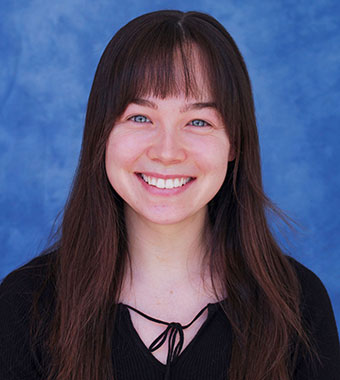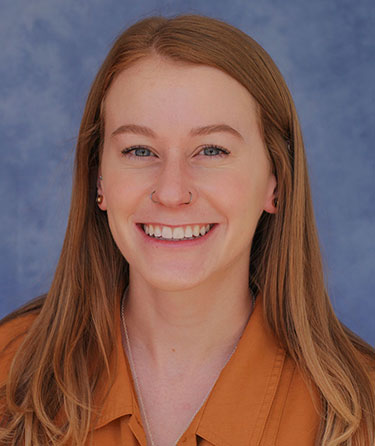2023 Amelia Earhart Fellowships
Ph.D. candidates Maizey Benner and Zoë Wilbur each received a 2023 Amelia Earhart Fellowship from Zonta International; they are two of only thirty scholars selected for the honor, which recognizes outstanding academic record and demonstrated initiative, ambition, and commitment to pursuing a career in space sciences.
 Maizey Benner studies the origin and evolution of phosphorus-bearing materials in ordinary and carbonaceous chondrites. These chondrite groups represent two reservoirs of material from the beginning of solar system history that are mostly unaltered since their formation. Probing these pristine materials allows her to evaluate the most primitive phosphorus-bearing materials and evaluate their thermodynamic conditions of formation for refinement of the solar condensation sequence.
Maizey Benner studies the origin and evolution of phosphorus-bearing materials in ordinary and carbonaceous chondrites. These chondrite groups represent two reservoirs of material from the beginning of solar system history that are mostly unaltered since their formation. Probing these pristine materials allows her to evaluate the most primitive phosphorus-bearing materials and evaluate their thermodynamic conditions of formation for refinement of the solar condensation sequence.
Maizey’s research couples experimental cosmochemistry and computational thermodynamics to better understand the origins and evolution of moderately volatile elements in the early solar system. She uses electron microscopy techniques such as electron microprobe, focused ion beam scanning-electron microscopy, and transmission electron microscopy to probe the chemistry and structure of materials from the micro- to nanoscale. Maizey also uses density functional theory to calculate the thermodynamic properties of materials for use in models of solar condensation. These two are linked by comparing experimental results to computational models of materials and iterating until they replicate the natural system.

Zoë Wilbur seeks to understand the history of degassing (volatile loss) among the sample suites, how eruption dynamics are preserved in lunar basalts, and to what extent volatile behavior is dependent upon a basalt’s chemical composition.
Zoë investigates the volcanic histories of Apollo 15 and Apollo 17 basalts and, in particular, an Apollo 17 basalt that was stored frozen and has been released for study for the first time after 50 years. This frozen sample is part of the Apollo Next Generation Sample Analysis Program. Zoë and her advisor (Dr. Jessica Barnes) are the first researchers to study this sample since its return from the Moon. This frozen sample offers a direct comparison to other basalts curated using traditional methods at room temperature and gives the opportunity to search for volatiles (like water) using improved, 21st century techniques. To analyze this specially curated sample, Zoë is utilizing a novel combination of 2D and 3D methods, including the measurements of water, chlorine, and fluorine in lunar minerals and 3D gas bubble structures.

